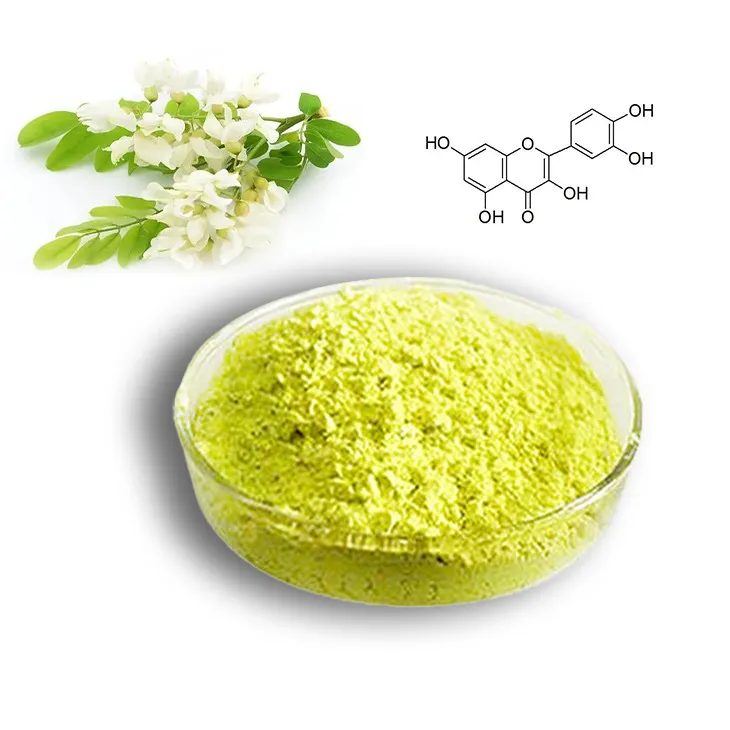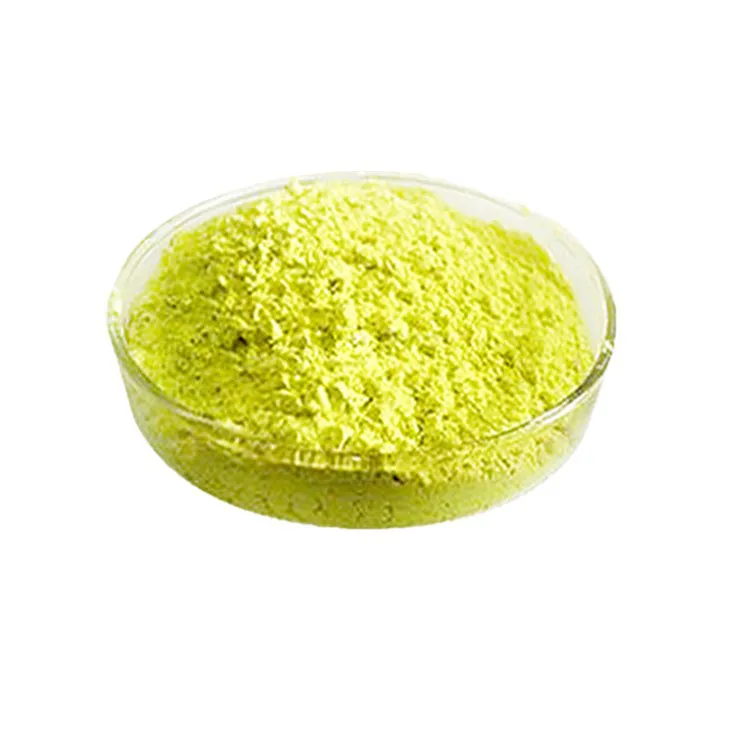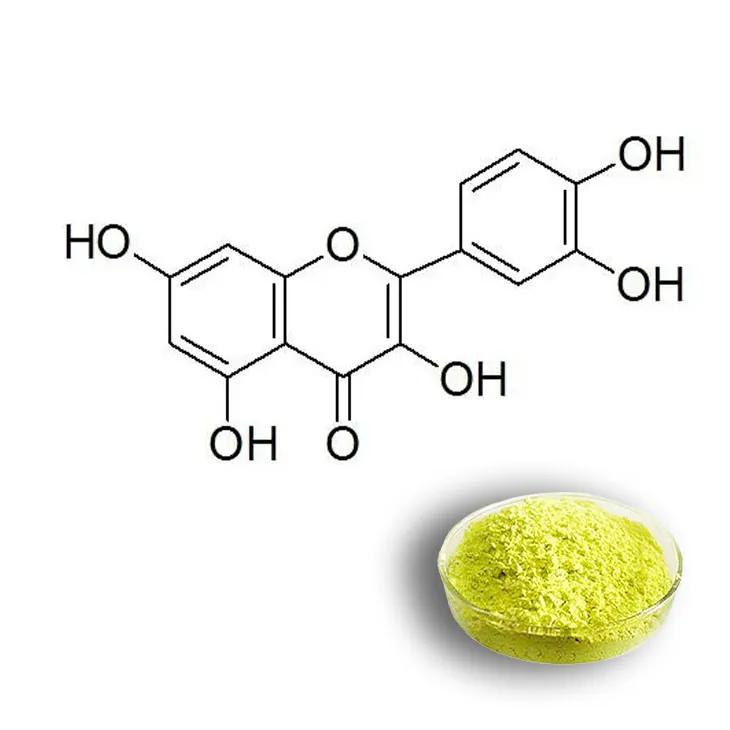- 0086-571-85302990
- sales@greenskybio.com
Organic Quercetin: Naturally Boost the Immune System
2024-11-11

Introduction to Organic Quercetin
Organic Quercetin is a natural compound that has been gaining significant attention in the field of health and wellness. Quercetin is a flavonoid, a type of plant - based chemical compound known for its various beneficial properties. It is widely distributed in nature, being found in a diverse range of fruits, vegetables, and herbs. This natural occurrence makes it an appealing option for those seeking natural ways to enhance their health, especially in relation to the immune system.

Quercetin as an Antioxidant
One of the most important functions of organic quercetin is its role as an antioxidant. In the body, there are constantly free radicals being produced as a by - product of normal metabolic processes. These free radicals are highly reactive molecules that can cause damage to cells, proteins, and DNA. If left unchecked, this cellular damage can lead to a weakened immune system and an increased susceptibility to various diseases.
Quercetin has the ability to neutralize these free radicals. It donates an electron to the free radical, thereby stabilizing it and preventing it from causing further harm. By doing so, it helps to protect the cells of the immune system from oxidative damage. This is crucial as immune cells need to be in optimal condition to function effectively. For example, white blood cells, which are key components of the immune system, rely on a healthy cellular environment to be able to recognize and destroy pathogens.

Modulation of Immune Cells
Macrophages
Scientific studies have demonstrated that quercetin can play a significant role in modulating immune cells. Macrophages, for instance, are important immune cells that are involved in the first line of defense against infections. Quercetin has been shown to enhance the phagocytic activity of macrophages. This means that macrophages are better able to engulf and destroy foreign invaders such as bacteria, viruses, and fungi. It does this by influencing the signaling pathways within macrophages, which in turn activates their phagocytic machinery.
Lymphocytes
Lymphocytes, another crucial type of immune cell, also benefit from the presence of quercetin. There are different types of lymphocytes, including B - cells and T - cells. Quercetin has been found to regulate the activation and function of these lymphocytes. For example, it can enhance the production of antibodies by B - cells, which are important for neutralizing pathogens. Additionally, it can influence the cytotoxic activity of T - cells, allowing them to more effectively target and kill infected cells.
Anti - Inflammatory Effects
Chronic inflammation can have a negative impact on the immune system. It can create an environment in the body that is conducive to the development of diseases and can also suppress the normal functioning of the immune response. Organic quercetin has notable anti - inflammatory effects.
It works by inhibiting the production of pro - inflammatory cytokines. Cytokines are small proteins that are involved in cell signaling during an immune response. However, an overproduction of pro - inflammatory cytokines can lead to excessive inflammation. Quercetin helps to keep this in check, thereby reducing chronic inflammation. This, in turn, contributes to a healthier immune environment where the immune system can function more effectively.

Sources of Organic Quercetin
Fruits
There are several fruits that are rich in quercetin. Apples, for example, contain a significant amount of this flavonoid, especially in their skins. Berries such as cranberries, blueberries, and strawberries are also good sources. These fruits not only provide quercetin but also other beneficial nutrients like vitamins and fiber, making them a great addition to a healthy diet.
Vegetables
Onions are well - known for their quercetin content. Red onions, in particular, tend to have higher levels compared to white onions. Other vegetables like broccoli, kale, and spinach also contain quercetin. Incorporating a variety of these vegetables into daily meals can help increase the intake of quercetin.
Herbs
Some herbs are also a source of quercetin. Sage, for instance, contains quercetin along with other bioactive compounds. Adding herbs to cooking or consuming them as teas can be a way to introduce quercetin into the diet.Quercetin as a Dietary Supplement
For those who may not be able to obtain sufficient amounts of quercetin from their diet alone, dietary supplements are available. These supplements are typically made from organic sources of quercetin.
When considering taking a quercetin supplement, it is important to choose a high - quality product. Look for supplements that are third - party tested for purity and potency. Additionally, it is advisable to consult with a healthcare provider before starting any new supplement regimen, especially if one has pre - existing medical conditions or is taking other medications.
Conclusion
In conclusion, organic quercetin is a natural compound with a wide range of beneficial effects on the immune system. Its antioxidant properties, ability to modulate immune cells, and anti - inflammatory effects all contribute to a healthier immune environment. Whether obtained from natural food sources or through dietary supplements, incorporating quercetin into one's routine can be a great way to support overall immune health. By maintaining a healthy immune system, individuals are better equipped to fight off infections and diseases, leading to a better quality of life.
FAQ:
What is organic quercetin?
Organic quercetin is a natural compound that can be found in fruits, vegetables, and herbs. It has properties that are beneficial for enhancing the immune system.
How does quercetin enhance the immune system?
Quercetin functions as an antioxidant, which helps combat free radicals that can damage cells and weaken the immune response. It also modulates immune cells like macrophages and lymphocytes, improving their ability to fight infections. Additionally, its anti - inflammatory effects contribute to a healthier immune environment by reducing chronic inflammation that may suppress immunity.
What are the sources of quercetin?
Quercetin is found in various fruits, vegetables, and herbs. Some common sources include apples, onions, berries, and green tea.
Can quercetin be taken as a supplement?
Yes, quercetin can be taken as a supplement. Incorporating it into one's diet or supplement routine can be a great way to support overall immune health.
Is there any side effect of taking quercetin?
When taken in appropriate amounts, quercetin is generally considered safe for most people. However, some people may experience mild side effects such as stomach upset or headache. It is always advisable to consult a healthcare professional before starting any new supplement.
Related literature
- The Role of Quercetin in Immune Health"
- "Quercetin: A Natural Immune Booster - A Review"
- "Beneficial Effects of Organic Quercetin on the Immune System"
- ▶ Hesperidin
- ▶ citrus bioflavonoids
- ▶ plant extract
- ▶ lycopene
- ▶ Diosmin
- ▶ Grape seed extract
- ▶ Sea buckthorn Juice Powder
- ▶ Beetroot powder
- ▶ Hops Extract
- ▶ Artichoke Extract
- ▶ Reishi mushroom extract
- ▶ Astaxanthin
- ▶ Green Tea Extract
- ▶ Curcumin Extract
- ▶ Horse Chestnut Extract
- ▶ Other Problems
- ▶ Boswellia Serrata Extract
- ▶ Resveratrol Extract
- ▶ Marigold Extract
- ▶ Grape Leaf Extract
- ▶ blog3
-
Cranberry Plants and Skin - care Products.
2024-11-11
-
Buckthorn bark extract
2024-11-11
-
Bilberry Extract
2024-11-11
-
Lavender Extract
2024-11-11
-
Curcumin
2024-11-11
-
Lycopene
2024-11-11
-
Tongkat Ali Extract Powder
2024-11-11
-
Nettle leaf extract
2024-11-11
-
Chasteberry Extract
2024-11-11
-
Cocoa Extract
2024-11-11
-
Saponin Extract
2024-11-11





















